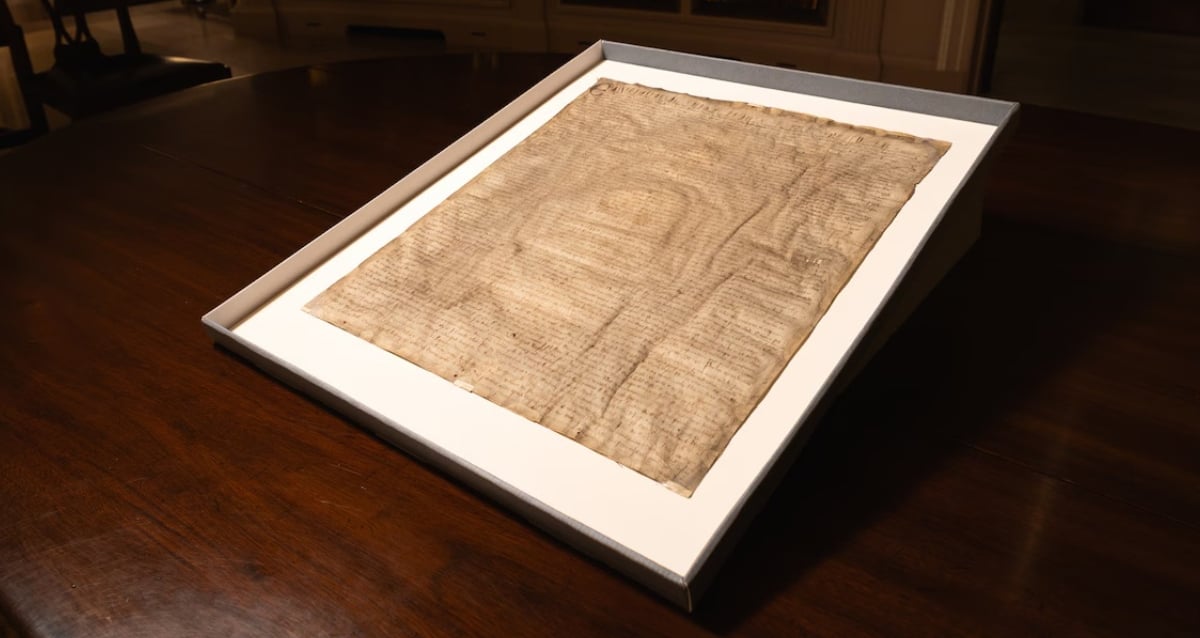Harvard’s Forgotten Stained Document Holds a Shocking Secret: An Original 1300 Magna Carta Unveiled After Decades
“The instant I saw it, I knew!” Vincent told The Washington Post. “Everything about the document looked right. The layout, the text, the handwriting, and the large capital E for Edwardus.”
The Magna Carta was reissued several times throughout the 13th and 14th centuries. King John reissued it himself in both 1216 and 1217, and then his son, King Henry III, had the Great Charter reissued in 1225. Henry’s son, Edward I, then reissued it in 1297 and 1300.
The Harvard Magna Carta just so happened to be one among the batch reissued by Edward I in 1300.

Wikimedia CommonsKing Edward I, the man who issued the copy of the Magna Carta that was recently rediscovered at Harvard.
It’s believed to be the 24th original overall, and just one of seven originals issued by Edward I in 1300. Researchers determined that the document’s dimensions are consistent with the six other known originals issued that year, as is the handwriting. Scribes of the 1300 Magna Carta were given strict instructions in how they printed, so any variation from those guidelines would indicate a copy — but HLS MS 172 didn’t feature any variations.
“The provenance of this document is just fantastic,” Vincent said. “Given where it is, given present problems over liberties, over the sense of constitutional tradition in America, you couldn’t invent a provenance that was more wonderful than this.”
Carpenter described the discovery as “almost providential,” given Harvard University’s current legal battles against the Trump administration regarding student protests concerning the Israel-Gaza conflict.
The university’s president, Alan Garber, has remained steadfast in his conviction that the government should not dictate what universities teach, which students they admit, or which teachers they hire. In response, the Trump administration terminated $450 million in federal funding to the university.
Vincent summarized why the Magna Carta has been so foundational, describing it as “a totem of liberty, central to our sense of who we are: a freedom-loving, free-born people.”
“Magna Carta says the ruler is subject to law,” Carpenter said. “The ruler can’t just say, ‘Off with your head.’ He can’t just take your land, but must follow the laws, too.”
After learning about how researchers identified this original Magna Carta in Harvard’s archives, learn about the messy history behind who wrote the Bill of Rights. Then, read about when the Constitution was written — and why the answer isn’t so clear.














